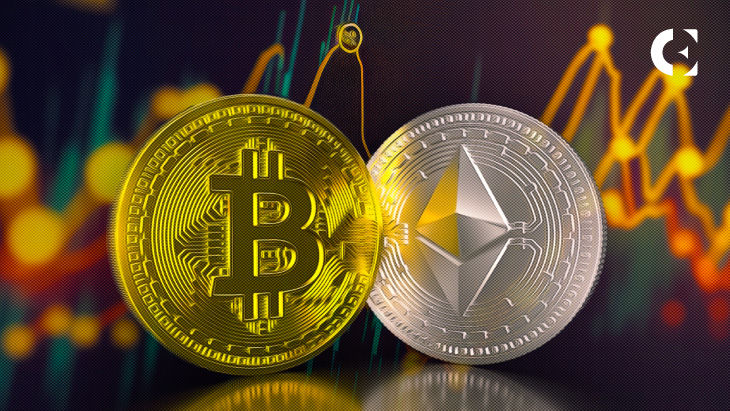Real-World Asset Tokens Outshine Bitcoin and Ethereum in Performance
The post Real-World Asset Tokens Outshine Bitcoin and Ethereum in Performance appeared on BitcoinEthereumNews.com. Tokens in the RWA tokenization market achieved a 61.98% performance in May. This average percentage growth outpaced Ethereum’s 26.1% and Bitcoin’s 14%. Meanwhile, meme-based coins registered only 7% growth over the past month. Real-world asset (RWA) tokenization has emerged as the top-performing sector in May, eclipsing the growth of stalwarts like Ethereum (ETH) and Bitcoin (BTC). Data from Artemis Terminal, a leading crypto analytics platform, reveals that tokens in the RWA tokenization landscape achieved a 61.98% performance over the past month. This average percentage growth outpaced Ethereum’s 26.1% and Bitcoin’s 14%. Interestingly, tokens in the Bitcoin ecosystem performed more commendably than BTC itself, with an average growth rate of 22.2%. Native assets of centralized exchanges followed with a performance score of 12.8%. Meanwhile, meme-based coins registered only 7% growth over the past month. Of all crypto narratives, the RWA sector stood out with a towering performance. The surge in RWA tokenization is attributed to a series of high-profile tokenizations and encouraging regulatory discussions that have occurred recently. For instance, Galaxy Digital recently issued a multimillion-dollar loan secured by a 316-year-old Stradivarius violin, tokenized as a non-fungible token (NFT). The violin, securely held in Hong Kong, serves as collateral, offering robust security for Galaxy Digital and flexibility in asset management. On the regulatory front, the U.S. Financial Services Committee held a hearing titled “Next Generation Infrastructure: How Tokenization of Real-World Assets Will Facilitate Efficient Markets.” The hearing evaluated the necessity for enhanced regulations to facilitate tokenizing real-world assets and derivative products. Prominent industry figures participated in the hearing, including Carlos Domingo, Co-founder and CEO of Securitize, and Robert Morgan, CEO of the USDF Consortium. Additionally, the industry’s long-term outlook is optimistic, with BlackRock CEO Larry Fink expressing confidence in tokenization’s potential to revolutionize financial transactions through customized strategies and instantaneous settlements,…

The post Real-World Asset Tokens Outshine Bitcoin and Ethereum in Performance appeared on BitcoinEthereumNews.com.
Tokens in the RWA tokenization market achieved a 61.98% performance in May. This average percentage growth outpaced Ethereum’s 26.1% and Bitcoin’s 14%. Meanwhile, meme-based coins registered only 7% growth over the past month. Real-world asset (RWA) tokenization has emerged as the top-performing sector in May, eclipsing the growth of stalwarts like Ethereum (ETH) and Bitcoin (BTC). Data from Artemis Terminal, a leading crypto analytics platform, reveals that tokens in the RWA tokenization landscape achieved a 61.98% performance over the past month. This average percentage growth outpaced Ethereum’s 26.1% and Bitcoin’s 14%. Interestingly, tokens in the Bitcoin ecosystem performed more commendably than BTC itself, with an average growth rate of 22.2%. Native assets of centralized exchanges followed with a performance score of 12.8%. Meanwhile, meme-based coins registered only 7% growth over the past month. Of all crypto narratives, the RWA sector stood out with a towering performance. The surge in RWA tokenization is attributed to a series of high-profile tokenizations and encouraging regulatory discussions that have occurred recently. For instance, Galaxy Digital recently issued a multimillion-dollar loan secured by a 316-year-old Stradivarius violin, tokenized as a non-fungible token (NFT). The violin, securely held in Hong Kong, serves as collateral, offering robust security for Galaxy Digital and flexibility in asset management. On the regulatory front, the U.S. Financial Services Committee held a hearing titled “Next Generation Infrastructure: How Tokenization of Real-World Assets Will Facilitate Efficient Markets.” The hearing evaluated the necessity for enhanced regulations to facilitate tokenizing real-world assets and derivative products. Prominent industry figures participated in the hearing, including Carlos Domingo, Co-founder and CEO of Securitize, and Robert Morgan, CEO of the USDF Consortium. Additionally, the industry’s long-term outlook is optimistic, with BlackRock CEO Larry Fink expressing confidence in tokenization’s potential to revolutionize financial transactions through customized strategies and instantaneous settlements,…







